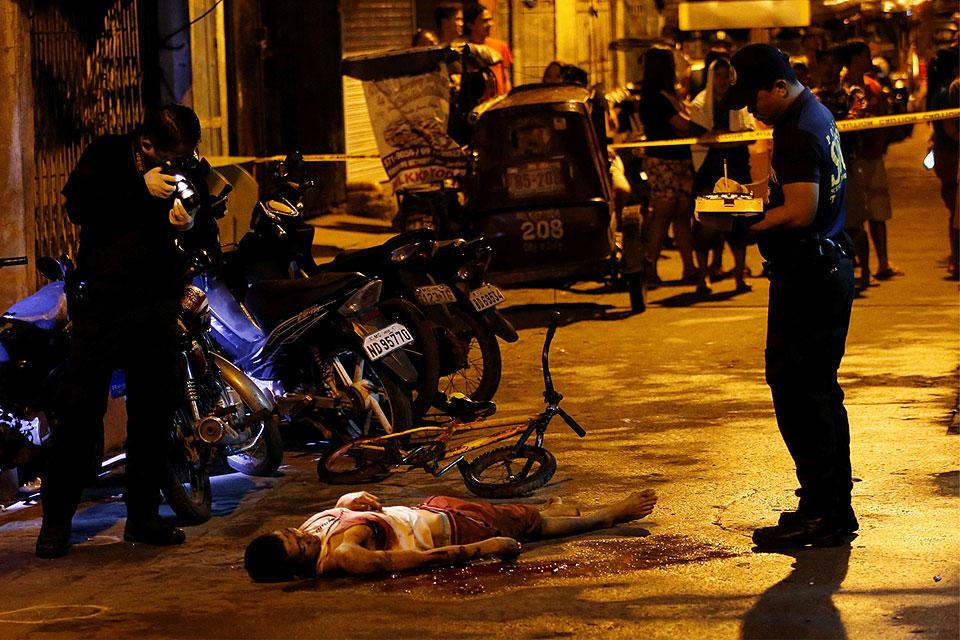CHR finds ‘strong indication of intent to kill’ in Duterte’s war on drugs

A probe of deaths linked to the Duterte administration’s war on drugs showed a “strong indication of intent to kill” on the part of the authorities, the Commission on Human Rights (CHR) said Thursday.
CHR spokesperson Atty. Jacqueline de Guia said investigations led by Commissioner Gwendolyn Pimentel-Gana had covered 451 of 3,295 killings since 2016.
She said 1,912 of these were a result of police operations and 1,382 were committed by unidentified assailants.
More than half or 55% of the cases examined so far took place in Metro Manila, Southern Tagalog, and Cebu.
“In our initial findings, we have deduced that because of the presence of the multiple gunshot wounds on the body of the victims as well as the location of those wounds [that] were at the fatal parts of the body, then such has a strong indication of intent to kill,” De Guia told GMA News Online.
The CHR is set to come out with its report in a month. The probe includes field investigations, interviews with surviving kin of victims and witnesses, forensic examinations, and available documents.
The independent body previously said its ongoing investigations showed the “brutality” of the anti-drug campaign and indicated “possible abuse of strength” by perpetrators.
Philippine National Police spokesman Police Brigadier General Ildebrandi Usana denied that there was a policy encouraging cops to commit violence or “extrajudicial way of exercising their functions during the operations."
Low indication of 'nanlaban'
Of the 400 plus cases investigated, CHR probers also discovered that there was a huge number of lawmen in anti-drug operations, putting the victim at a "disadvantageous position."
This supposedly belied police claims that the victims "fought back” [nanlaban].
"We initially found out that there is a low indication of 'nanlaban' claim because there is a presence of superiors there. Meaning to say, because of the number of operatives in each operation conducted, such would put the victim at a gross disadvantage and will be unable to fight back," said De Guia, adding that part of their report also looked into reports of police that suspects resisted arrest or fired back using a weapon.
De Guia also found that common narratives in police operations include serving search warrants and barging at the house of victims while victims were sleeping.
Based on a February report by the inter-agency task force created to review the killings, many of the weapons of drug suspects who died in police operations were not examined.
Police claimed that suspects fought back but there were no ballistic examination or paraffin tests on the cases, Department of Justice (DOJ) Secretary Menardo Guevarra said.
First step to signaling accountability
Saying that the CHR's study complements the task force’s drug war review, De Guia hoped that their deeper coordination with the justice department would make sure accountability on the drug war deaths.
"We are trying to deepen our engagement with each other. That is signalled by signing a data sharing agreement with DOJ. Whereby, we hope this would signal the first of many steps into ensuring accountability with regards to the killings happening in regards of the war on drugs," De Guia said.
De Guia, meanwhile, sought the Philippine police's "openness" in the investigation. She also called on the Philippine government to have a "strong commitment" to end the drug-related killings.
Last month, the CHR said the justice department's findings on the irregularities of the drug war was a "step in the right direction."
It also said that it would coordinate with the DOJ to look into the drug-related killings.
This came after the nation's rights body lamented that the DOJ excluded CHR from its inter-agency review of drug war deaths, which reevaluated police anti-drug operations. -NB, GMA News



